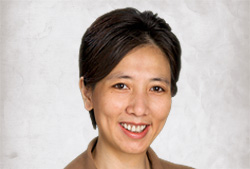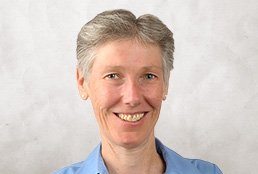This National Physiotherapy Month, meet Dr. Linda Li and Alison Hoens, dual physiotherapists and researchers who are working to improve the lives of people with arthritis.
May is National Physiotherapy Month, a time to recognize and celebrate the important contributions of these care providers and the impact they have on patients’ lives. At CHÉOS, Scientist Dr. Linda Li and Research Associate Alison Hoens play dual roles as physiotherapists and researchers.

“Our research focuses on helping people with arthritis meet recommended physical activity levels to improve quality of life,” said Dr. Li, a Professor in the UBC Department of Physical Therapy.
Physical activity is a core component of managing arthritis and helps to reduce pain and improve mobility. However, many people with arthritis remain sedentary, citing pain, fatigue, or safety concerns as barriers to maintaining an active lifestyle.
Dr. Li, along with Hoens, a Clinical Professor and Physical Therapy Knowledge Broker at UBC, studies different approaches to physical activity promotion.
Working with physiotherapists and people living with arthritis, they have developed counselling techniques, with the use of wearable trackers and apps, to help patients develop habits and plan their activities, track their progress, and review their performance.
“Our results show that people who receive this type of counselling spend more time physically active compared to people on a waiting list,” said Hoens. “We also found that people with inflammatory arthritis who received physical activity counselling had less pain.”
The researchers are now adapting this counselling strategy for older people through integration with a structured exercise program. The aim is to prevent future falls in older people who have had a recent major fall. “We are now testing if the counselling strategy helps them to stick to their exercise program, and if it helps to lower their risk for falls,” explained Dr. Li.
The team has also developed a symptom tracking app, used in conjunction with a Fitbit. Using this combination, they are studying a holistic counselling approach that takes into account how patients spend their time during their day how it affects their arthritis symptoms.
“The goal in this project is to have a personalized counselling strategy that can be adapted and used by any health professionals to help patients adopt a healthy balance with activity, rest, and sleep as a part of their self-care,” said Dr. Li.
The researchers have recently shifted to focus on a more balanced activity profile in people with arthritis, rather than specific activity targets, especially during the COVID-19 pandemic.

“We all have only 24 hours in a day, and what we each do with that time can be different,” explained Hoens. “This means patients may need a tailored strategy to help them stay active.”
Ultimately, these projects give physiotherapists and other health professionals more information about their patients’ typical activity levels and to help them understand how arthritis affects them.
“The integration of research evidence into practice is one of the aspects of physiotherapy that makes it such a patient-centered, innovative field and helps to make a real impact in people’s lives,” said Dr. Li.



